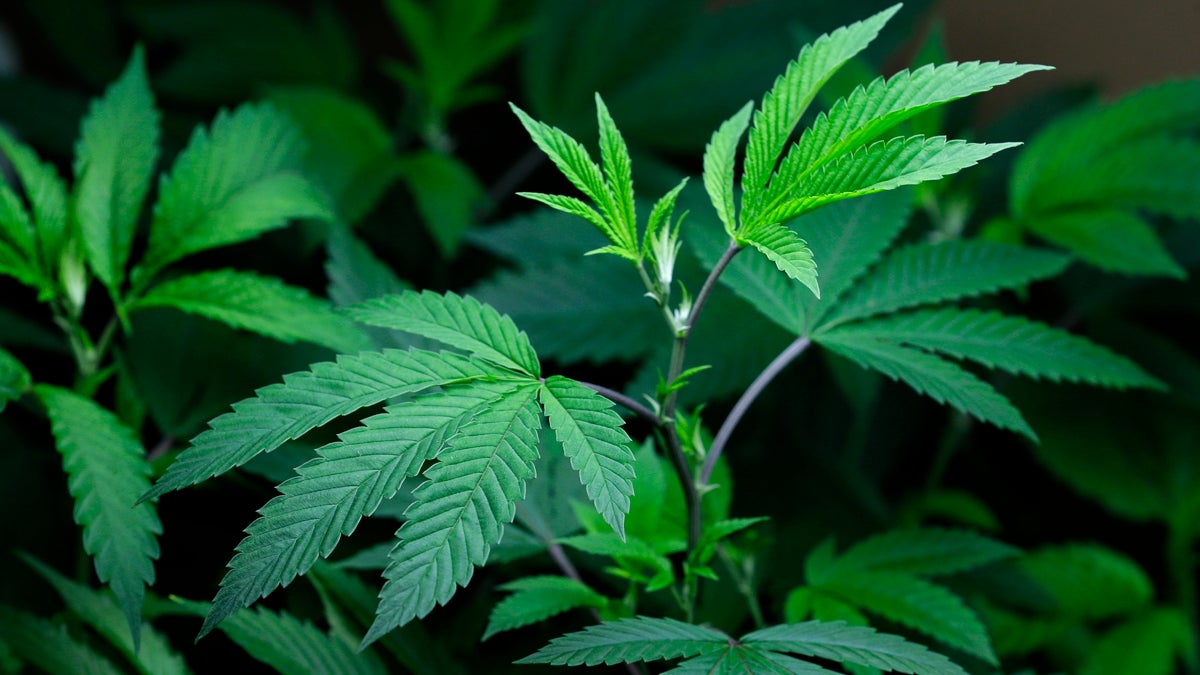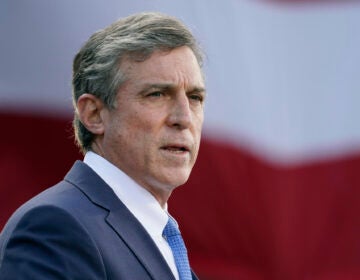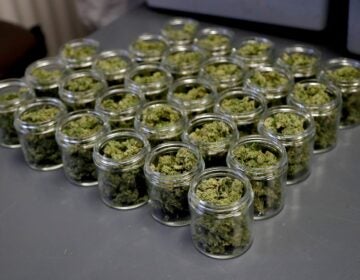Delaware reacts to AG Sessions cannabis memo
Some Delaware lawmakers have been making a push to legalize recreational marijuana, but new federal guidance could derail those plans.

(AP Photo/Ted S. Warren, file)
Delaware cannabis advocates are reacting to a memo by U.S. Attorney General Jeff Sessions giving U.S. attorneys the discretion to enforce federal marijuana laws, even in legal states.
While eight states have legalized recreational pot and 28 states allow medical marijuana, it remains illegal under federal law.
In 2013, the Department of Justice removed cannabis from a federal priorities list for drug enforcement.
Sessions is now rescinding those guidelines, allowing U.S. attorneys to decide how harshly federal marijuana laws will be enforced in their jurisdiction.
“It is the mission of the Department of Justice to enforce the laws of the United States, and the previous issuance of guidance undermines the rule of law and the ability of our local, state, tribal, and federal law enforcement partners to carry out this mission,” said Attorney General Jeff Sessions in a Thursday statement.
“Therefore, today’s memo on federal marijuana enforcement simply directs all U.S. Attorneys to use previously established prosecutorial principles that provide them all the necessary tools to disrupt criminal organizations, tackle the growing drug crisis, and thwart violent crime across our country.”
In Delaware, state Rep. Helene Keeley, D-Wilmington, is attempting to pass legislation to legalize recreational marijuana for those 21 and older.
“This is really a state’s rights issue. I really truly believe that,” she said of Sessions’ announcement.
“I view this the same as Governor Christie in New Jersey who is suing the federal government over their non-ability to have fully-fledged sports betting, and the Supreme Court has taken that amicus and is going forward and hearing it. You’re changing the rules in the middle of the game.”
When asked whether acting U.S. Attorney for Delaware David Weiss would enforce federal marijuana laws if Delaware legalized recreational marijuana, Weiss’ office issued the following statement: “The U.S. Attorney’s Office for the District of Delaware will utilize the long-established prosecutorial principles to carry out the shared commitment with the Justice Department to combat violent crime and the scourge of drug offenses plaguing our community.”
Earlier this year, a legislative committee advanced Keeley’s legislation, co-sponsored by state Sen. Margaret Rose Henry, D-Wilmington, but it never went to the floor for a vote.
As currently written, the legislation would regulate and tax cannabis much like alcohol. Individuals would be prohibited from operating a vehicle under the influence, carrying it across state borders and growing or creating products on their own, and companies would still be allowed to drug test employees.
Proponents say cannabis is significantly safer than alcohol and tobacco, has medical benefits, creates jobs and boosts the economy. Legalization in Delaware would bring in an estimated $22 million in taxable revenue, advocates say. Keeley’s current legislation would tax marijuana at $50 and it would cost buyers about $200.
Those in favor of legalization argue criminalizing marijuana is just as ineffective as alcohol prohibition was, creates a dangerous illicit market and causes unnecessary arrests of non-violent offenders, often with a racial bias.
A University of Delaware poll shows 61 percent of Delawareans are in favor of legalization.
While the bill has several supporters, many stakeholders say too many safety and regulatory issues surround legalization. Those opposed point to complicated tax structures, their belief cannabis is a gateway drug and concerns around how to enforce and control drugged driving.
To address concerns, on the last day of session last year, Keeley introduced a resolution creating a 26-member task force, which consists of lawmakers, health experts, law enforcement, AAA and other state officials. The group will submit recommendations on best practices for legalization.
Gov. John Carney, D-Delaware, opposed legalization for recreational use during his campaign. He said Delaware should wait until more research is conducted on cannabis, and it’s seen how successful legal states are. However, he’s also hosted several town halls to listen to arguments from advocates. Carney has yet to say if he will sign a bill if it lands on his desk.
Cannabis advocate Cynthia Ferguson, executive director of Delaware NORML, who sits on the cannabis task force, said she’s concerned how the memo will affect his decision.
“I’m hoping it won’t scare our politicians off. Not the politicians specifically, but our governor, who’s sitting on the fence anyway,” she said. “I don’t want to see this as an excuse for him to not sign the legislation that will definitely go through this year.”
Keeley said she hasn’t discussed the matter with Carney in several months. She said legislators already opposed to the bill may use the memo in their arguments to reject the bill, but doesn’t believe it will significantly sway opinions or deter officials in states where marijuana is legal.
U.S. Attorneys in Colorado and Oregon, where marijuana is legal, have stated the memo doesn’t change the way they already enforce laws.
“The 2013 Department of Justice issued Cole memo did not remove the ability or discretion for federal prosecutors to prosecute any cannabis charge, or even cannabis business in violation of the Controlled Substance Act, and basically de-prioritized the enforcement of federal cannabis laws with regard to state-licensed businesses in compliance with state law,” said cannabis advocate Zoë Patchell.
“It basically provided eight areas of concern that were supposed to be the highest priority for enforcement—that included sales to minors, crossing state lines, cartel involvement and cultivation on federal property. The new memo issued yesterday simply removes the eight areas of concern and reminds prosecutors something they’ve already had, which is the ability to prosecute any cannabis case that violates federal law at their discretion.”
She and her organization, the Cannabis Bureau of Delaware, don’t believe the memo will affect policy change in Delaware but are disappointed in the decision.
“We believe rescinding the Cole memo is irresponsible, and an expensive position for the Department of Justice that not only contradicts the majority of American voters’ [beliefs] but is inconsistent with the current administration’s pro-business platform,” Patchell said.
“Enforcement on the well-regulated legal cannabis market would create a public safety hazard and waste limited resources by taking a safe and lucrative product out of the hands of responsible state licensed and regulated business owners who are paying taxes and employing tens of thousands of people, and return a billion dollar industry to the black market, which funds firearms and criminal activity.”
WHYY is your source for fact-based, in-depth journalism and information. As a nonprofit organization, we rely on financial support from readers like you. Please give today.





